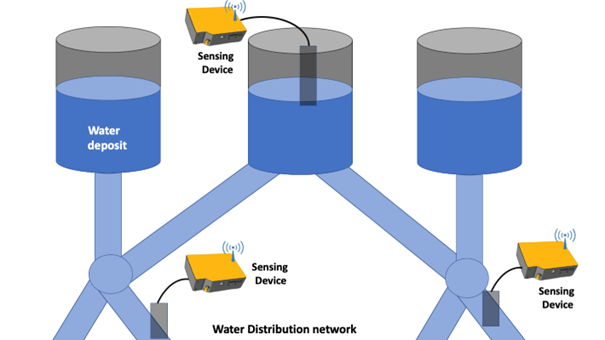
The problem that H2OforAll project (funded by European Commission via the HORIZON-CL6-2022-ZEROPOLLUTION-01 (Clean environment and zero pollution) call ) is targeting is the following: Water purification and disinfection are crucial processes to provide safe water to citizens, but the low quality of water sources due to soil/freshwater increasing contamination makes this goal very challenging. Disinfection byproducts (DBPs), produced when chlorine disinfectant reacts with organic matter in water, have a serious impact even at low concentrations on the environment and human health, still not well understood. Effects on human’s liver activity and neurotoxicity were already reported.
In this context, the H2OforAll project aims to assess main DBPs sources and fate through the development of fast, cost-effective and accurate sensor monitoring devices and also by modelling their spread through drinking water distribution systems. In addition, DBPs toxicity and environmental impact will be studied in this project and measures will be proposed to protect drinking water chain. On the other hand, breakthrough water treatments to remove DBPs or avoid their formation during water disinfection processes will be developed, paying attention to their life cycle analysis, costs and risks. A central knowledge base with reliable data on the occurrence of DBPs in Europe and their effects will be created to increase awareness of society and governmental organizations about these drinking water contaminants in order to draw new policy responses and guidance.
In the H20forAll project, the Pervasive Systems group will work on the development of cost-effective sensor monitoring devices to detect DBPs, employing spectrometry and advanced AI/machine learning techniques for more accurate detection of contaminants.
The project starts in November 2022 and it lasts two years.





